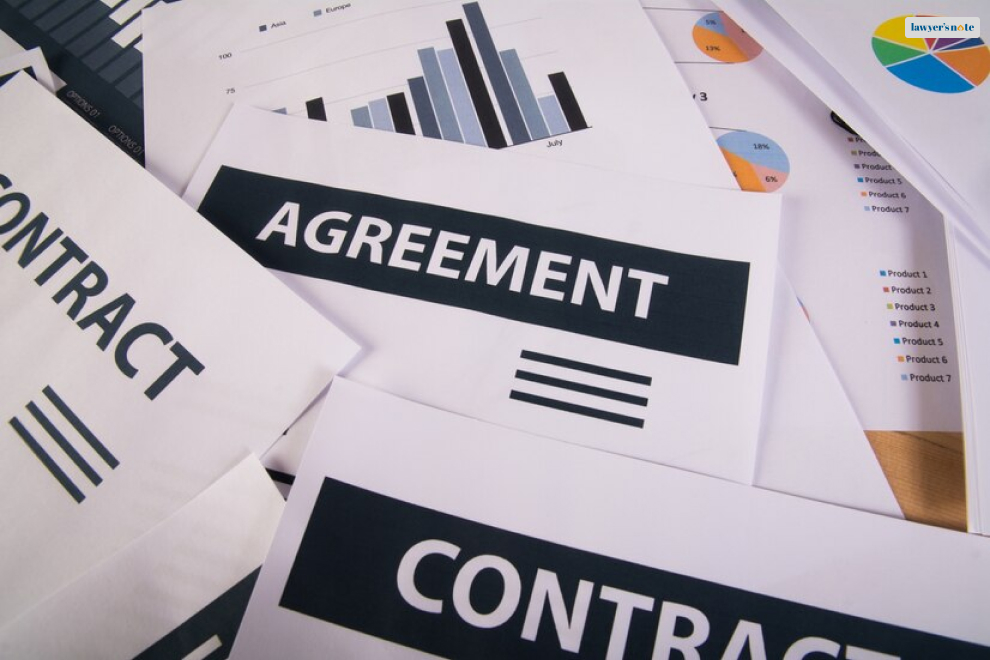Bus Accident Attorneys: Essential Tips for Victim Representation
As bus accident attorneys, we have undergone a series of bitter experiences with the victims that are quite horrifying. After....
1353 Views

It’s important to keep a steady and ironclad relationship with your suppliers. It helps you to reach your business in the global market.
Suppliers lay the foundation of any robust business relationship and protect you as well. However, you might be still wondering what exactly a supplier agreement involves.
Well, don’t worry we have got you covered! In this article, we will learn everything about supplier agreements and how you can create them on your own.

A supplier agreement is a legally binding contract between parties where one party agrees to provide agreed-upon goods and services to the other. The agreement even sets out vivid terms and conditions for retaining a robust supply relationship based on quality, price, delivery schedule, and other important details.
A supplier agreement also goes by the name of a supply agreement, subcontract, and even a purchase order. It’s very important to keep in mind to have an iron-clad supplier agreement in place so that both parties can understand all their rights and obligations. An agreement devoid of any misunderstandings and disputes is a fine example of a supplier agreement.

A supplier agreement amounts to a certain legal validity to maintain an effective business partnership between a buyer and a seller. However, the terms of effectiveness come with certain rules and regulations. Let’s see what they are:
It’s crucial that as an entrepreneur of your firm, you understand the necessary documents for a supplier and their business model. It is crucial to map out the potential outcomes of the ways to see how well both parties are aligned with one another to each other.
By both of you (you and your supplier) jointly mapping this model, you could easily pinpoint the value transactions. This might even result in a logical collaboration. You can amicable sustainable profits and understand your market shares much more closely.
A proper business model map also helps to fashion a culture between you and your supplier to maximize profits efficiently.
Once you map out the business model, both of you work together to impose a joint vision to guide you through a thorough vested relationship. A proper collaborative and cooperative mindset would cater to opening meaningful conversations between the parties.
This results in sharing what you need and admitting gaps in capability. You can even aim properly to focus on the benefits you and your supplier can bring to the table.
This lays the groundwork for both of you involved in the agreement to do what they’re best at. Depending upon the scope of the partnership, the company then transfers some or all the activities that you might need to meet the gaps. Together, you and your supplier can thereby develop a proper statement of objective that comes up with proper results and no tasks.
If you want an ironclad supplier agreement, it’s crucial that you and your supplier work together to have quality and desirable outcomes. This acts as a centerpiece of the entire enterprise. This means having mutually defined goals in place.
Here, outcomes are expressed with different terms of a limited set of high-level metrics. Both of you must engage during an agreement transition and during agreement negotiations. This measures the success of every secure relationship.
Once you’ve put the results in place, your supplier is now free to deliver the performance required at a pre-determined price.
Once all the statements of objectives, desired outcomes, and intent statements are in place, the parties then measure the performances that determine whether the outcomes
are properly achieved or not. The metrics hence play an important role in bringing performance to strategy.
Optimizing your pricing models and gaining their incentives are directly proportional to achieving any desired outcome. Both you and your supplier should have an adequately structured pricing model that helps in incorporating incentives for the best cost as well as the service trade-off.
Even though higher profits are not guaranteed in this matter, it offers the service providers the authority and the autonomy to make proper strategic investments in the process. It helps in improving product reliability and helps to generate much more value in investment returns.
Proper relationship management systems help in creating joint policies that emphasize the importance of building a collaborative working relationship and attitude.
This helps them to monitor an agreement within the framework of flexible governance, providing insights into the things that are taking place currently.
This is mainly a brand-new component of a supplier agreement model. As the business ecosystems and people are changing dynamically, it’s a common method where both parties are doing things differently and not operating in familiar comfort zones.
By managing these transformations, it is also extremely imperative to preserve continuity as much as possible among teams and personnel.
Sometimes it happens that the agreement between you and your supplier might simply not work out. It might happen when it gets trumped by different unexpected events. If your supplier agreement has a robust exit management strategy, it can provide a template for you and your suppliers to handle the unknown.

Supplier agreements are not one-size-fits-all. There are several technical and complicated relationships that you might have with your supplier. This component helps you to determine that all the contracts are drafted differently by the different needs of the suppliers and the receivers.

A supplier agreement governs the proper procurement method of the deliverables. However, there are different types of supplier agreements. They are:
This is a standard method of agreement that helps in procuring goods and services from a supplier. It also includes the various aspects of pricing, delivery schedules, quantity, payment terms, and of course, dispute resolution.
In this case, an MSA establishes the terms and conditions to govern the future transactions properly between the two parties. It covers the crucial aspects of pricing, product specifications, warranties, intellectual property rights, etc.
In this case, the SLAs are commonly used to engage the suppliers for services rather than physical goods. They also outline the specific services provided based on the performance metrics, availability, penalties for non-compliance, and other KPIs.
A distribution agreement is drafted when a supplier grants another enterprise to distribute its products in a particular market. It also defines the roles and responsibilities coming in between both parties and talks about the exclusivity or non-exclusivity of distribution.
Here the company outsources the manufacturing to a supplier. This agreement covers all the details about product specifications, pricing, quality control, delivery schedules, and confidentiality.
When you’re outsourcing a specific business, to work as your supplier, this agreement then comes in handy. It even outlines the scope of work, liability, transition planning, and its specific address to termination clauses.
This is a confidentiality agreement between you and your supplier that protects sensitive information that might be shared between the parties during their business relationships. It ensures that your supplier safeguards the confidential information and refrains from disclosing it to any unauthorized party.
This agreement comes up with a general agreement for future agreements between the parties. It establishes the terms and conditions that govern the specific agreements based on pricing, deliverables, quality, and dispute resolutions.
A supplier agreement helps with seamless business functions. These agreements help in maintaining a steady supply chain.
However, in case of a dispute due to any reason it can massively affect the output efficiency of the overall business. A supplier contract might not be mandatory, but we would suggest that you have one for your own safety.
Having a supplier agreement would significantly help you to risk any sort of ambiguity that might arise in the future.

At a glance, a supplier agreement relationship between you and your supplier is one of the most looked-through relationships. If you want your business to deliver satisfactory services, these agreements help largely streamline the workflow. However, there are several challenges that you might face while working through supplier agreements. They are:
One of the biggest challenges that you might face in an agreement is that sometimes you don’t look at their past and current projects. Sometimes, it even happens that you do not investigate its legal and tax implications as well.
Sometimes, if either of you belongs to a different culture, it becomes a tad bit difficult to have the same views during a conversation.
Communication plays a crucial role in advancing a business. If your supplier doesn’t understand your strategic goals to fulfill your needs, then it might lead to poor results. Therefore, it’s crucial that you maintain good contact with your suppliers to help benefit your organization.
Sometimes, there is an immeasurable gap between you and your supplier. In that case, technology plays a crucial role in bridging that gap. So, try to analyze the entire situation by adopting effective purchase order methods and invoice management tools.
One of the biggest things you should know about supplier agreements is that they help in safeguarding intellectual property rights. This even includes that if you own an intellectual property created during the period of the contract, it preserves each party’s existing rights over their respective properties. This also helps prevent confidential information from being revealed to any external sources. In order to ensure proper protection between both sides, the agreement clauses should explicitly include unauthorized usage.

You can always add finesse to your supplier agreement. Since supply agreements are the biggest lifeblood of manufacturing companies, there are certain aspects you should keep in mind about them.
Use proper critical commercial terms that ensure that the terms and conditions of both parties are met properly. Other than that, the supplier agreements must include terms of
quantity of the product or service that needs to be supplied. Finally, the notions of termination, warranties, and disclaimers should be included in the contract which would later reduce any chances of miscommunication.
And that’s a wrap! That’s all you have to know about supplier agreements. However, let us know if we have missed out on any point. We hope you found this blog helpful and informative.
Read More…
Understanding Your Rights: A Guide To Criminal Law In Brisbane
How To Prove Legal Malpractice?: A Comprehensive Guide
A Complete Guide To The Kentucky Rules Of Civil Procedure

As bus accident attorneys, we have undergone a series of bitter experiences with the victims that are quite horrifying. After....

One of the significant challenges in the legal field is the matter that requires proving legal malpractice. Proving a legal....
By LawyersNote
08 May 2024
In the world of real estate law, easements play a crucial function in defining property rights and get entry to.....
By LawyersNote
01 Apr 2024